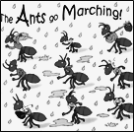题目内容
【题目】Parents have a legal________ to ensure that their children are provided with efficient education suitable to their age.
A. impact B. commitment
C. influence D. motivation
【答案】B
【解析】
试题分析:考查名词。句意:父母由有法律承诺保证他们的孩子在他们适合的年龄接受教育。 A. impact 影响;B. commitment 承诺;C. influence 影响;D. motivation动机。根据句意可知选B。

练习册系列答案
相关题目


